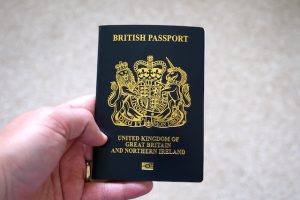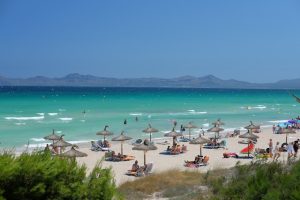
This popular vacation spot has some recent tightening of the rules for visitors. So, if you are planning to visit Spain, you should be aware of what’s changing for you.
According to statistics by CAA, over 13 million Britons travelled to Spain between July and September 2022. Don’t forget that Spain had Covid entry requirements in place for citizens of third countries until October 2022. So, this number is likely to rise this year as Spain continues to be the UK’s most popular vacation destination.
Regional crackdowns on unruly tourist behaviour have led to an increase in the number of laws for visitors. However, there is still uncertainty over passport validity for admission into EU countries such as Spain. And, many travellers are still unaware of the rules about that.

A clarification on the validity of a British passport to travel to the EU was long-awaited. The Foreign Office shared a clarification on this last May. However, many visitors are still confused regarding certain aspects. For admission into Spain and other EU nations, your British passport must satisfy two separate conditions, independently.
So, for your passport to be valid for the duration of your journey, it must comply with both standards.
Besides, Brexit also changed things for how can Britons travel across the EU. Holders of British passports are allowed to stay within the Schengen area for a maximum of 90 days within 180 days. This is in addition to the passport requirements outlined above. Also, when you enter and depart Spain, get your passport stamped for sure. Although the EU is working on phasing out stamping with EES and Etias systems that are not live yet.

When travelling to Spain by car, your vehicle needs to have the UK sticker on display regardless of whether it is part of your licence plate. And, you will also need to prove that you are permitted to use your vehicle (rented or leased) abroad. Carrying the vehicle logbook (V5C) or a VE103 is necessary.
In an effort to tackle anti-social behaviour by visitors, tourist offices and local governments came up with rules and bylaws recently.
A new bylaw was recently put into effect by the Ses Salines council in the southeast of Mallorca. It was aimed to control excess on its beaches including Colonia de Sant Jordi. According to the Majorca Daily Bulletin, it is now illegal to use music equipment (radios, instruments, loudspeakers) unless it’s for an event or activity organized by the council. Other things like hawkers, beach camping, nudity, fires, and fireworks are also banned.

Laws in San Antonio’s West End in Ibiza and El Arenal & Magaluf in Mallorca prohibit happy hour, free drinks, two-for-one drink sales, and cheap alcohol promotions and advertising. Pub crawls, as well as “balconing” have been outlawed at all-inclusive hotels and maximum alcoholic consumption is limited to six daily. Such resorts can’t sell alcohol by law from 9.30 p.m. to 8 a.m. Also, party boats are not permitted to pick up visitors from these resorts. Fines of €1,000 to €6,000 may be imposed on visitors who violate the law.
Even if the party is held in a private villa, a residential, or a protected area, attending unlicensed events will attract fines of up to €25,000.
Drunken tourism clothing is also banned at some of Mallorca’s establishments and restaurants. This attire includes swimsuits, football strips, novelty items and anything that encourages binge drinking. Topless parades are prohibited on city streets as a part of the dress code, which also applies to Palm Beach restaurants.
The Resort of Vigo, Galicia on the mainland of Spain declared a ban on peeing in the sea last year. Rule breakers will be liable to pay a fine of €750.
And, last summer, smoking was outlawed on beaches in Barcelona, with fines of €30. Numerous resorts on the mainland and in the Balearic Islands have also banned smoking on the beaches.
